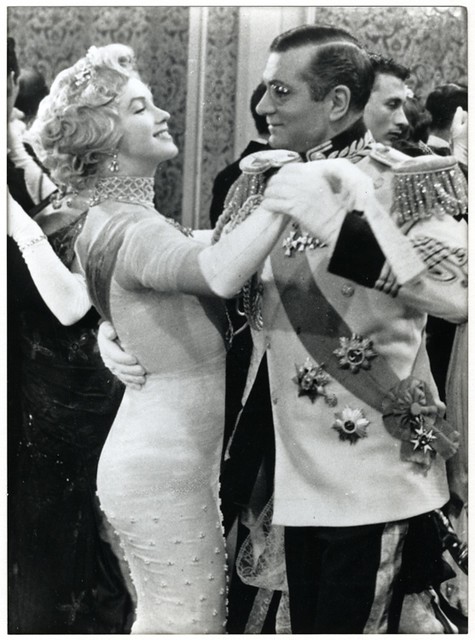
A glamorous Marilyn Monroe in her heyday dancing with Sir Lawrence Olivier in The Prince and the Showgirl
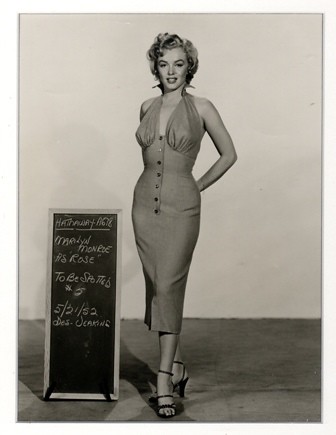
This is the world famous hourglass figure
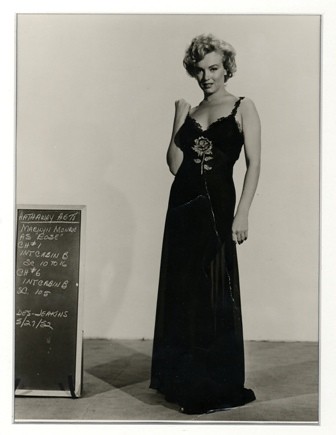
A young Marilyn
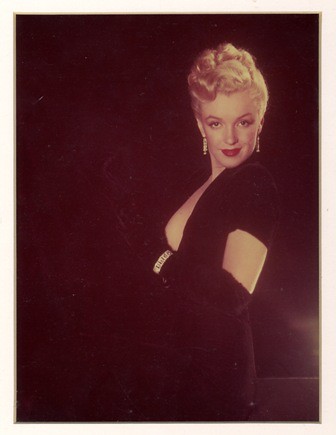
The more sophisticated version
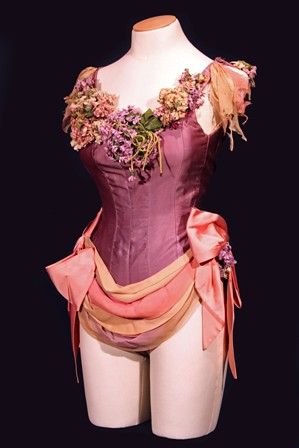
This floral ensemble looks eeriely modern and could have been worn by Beyonce yesterday
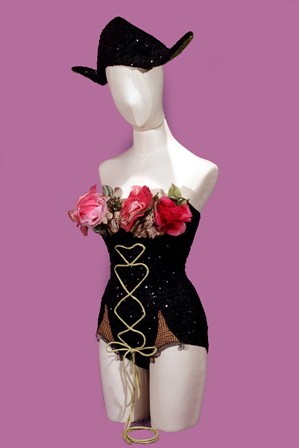
Victoria's Secret should do a contemporary take on this sexy number!
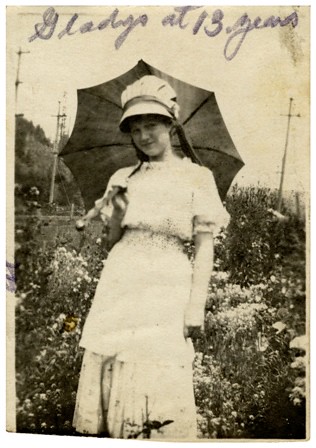
At gawky 13!
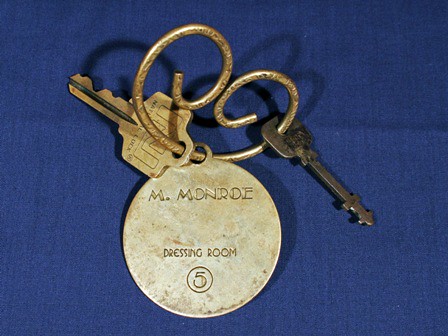
The door is long gone now but this was the key to Marilyn Monroe's dressing room
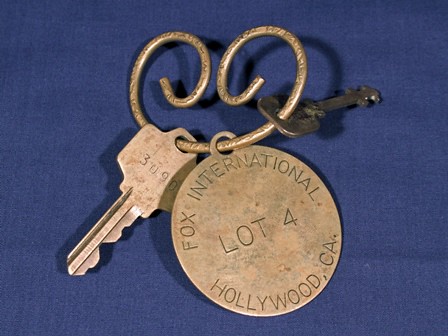
Her parking lot
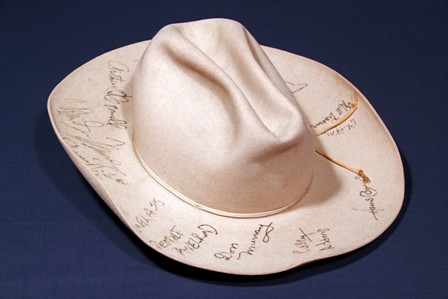
Her autographed hat
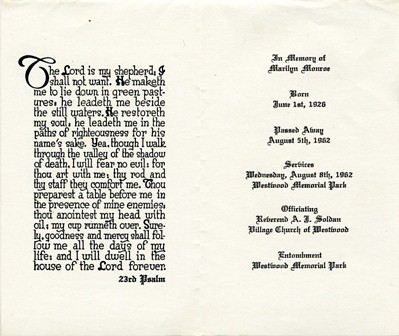
Her memorial card
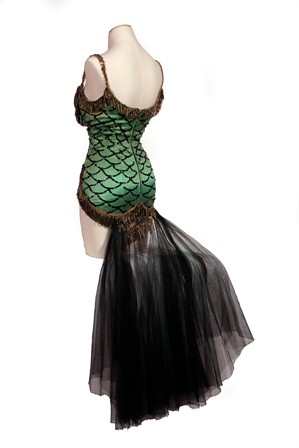
Marilyn Monroe had the sexiest ass of her time
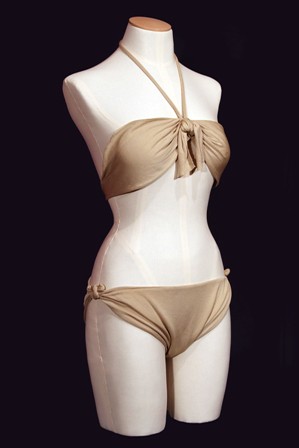
MM wore this in The Misfits, 1961
Old fogies will drool over Marilyn Monroe and relive their childhood all over again while youngsters will get to know the original sex symbol who could teach Beyonce, Madonna and Christina Aguilera a trick or two were she alive today. To this day, even twenty-somethings who have never seen any of MM's movies will know Marilyn Monroe and Sex Appeal usually appear in the same sentence and can be interchanged with each other effortlessly.
Now Bath Museum in England is hosting an exhibition showing the world's biggest collection of Monroe paraphenalia from 12 March till 30 October 2011.
Marilyn Monroe – Hollywood Icon
I knew I belonged to the public and to the world, not because I was talented or even beautiful, but because I had never belonged to anything or anyone else.
Marilyn Monroe (1926-1962)
Worn in Bus Stop, 1956
From There is No Business like Show Business, 1954
Some Like it Hot, 1958
Gentlemen Prefer Blondes, 1953
Gentlemen Prefer Blondes, 1953
There is No Business like Show Businessm 1953
There is No Business Like Show Business, 1954
The Prince and the Showgirl, 1956
The Prince and the Showgirl 1956
The Prince and the Showgirl, 1956
Niagara, 1953
As part of its 50th anniversary celebrations in 2011, the American Museum in Britain celebrates the enduring legacy of one of Hollywood’s greatest stars, Marilyn Monroe (1926-1962). From 12 March to 30 October 2011, the American Museum is presenting Marilyn – Hollywood Icon, an exhibition that will showcase the largest privately owned collection of Monroe’s film costumes and personal gowns, as well as intimate items of memorabilia that hint at the vulnerable and self-destructive personality behind the glamorous facade.
Throughout her life, Monroe’s self-confidence and ability to be happy was destabilised by the threat (real or imagined) of inherited mental illness. She was born Norma Jeane Mortensen – the third and youngest child of Gladys Pearl Baker Mortensen, née Monroe, a film cutter for Columbia and RKO. Gladys was unable to look after any of her children and Norma Jeane lived with foster parents for most of her childhood. Poignantly, the girl did live with her mother for a few months in 1933 before Gladys suffered a severe breakdown and was institutionalized – as were both her parents. The exhibition features previously unpublished photographs of Gladys. Her prettiness mirrors that of her famous daughter – especially noticeable in an image of a thirteen year old Gladys under a parasol. Only a year later, Gladys would be married to a man over ten years her senior, who would often beat her. After the couple divorced in 1922, Gladys’s ex-husband kidnapped their two children, even though custody had been awarded to her.
A ring given by Gladys to her youngest daughter “for luck” is also on view in the exhibition, along with household items Monroe kept with her for most of her adult life. These pieces are surprisingly mundane: when out of camera shot, the glamorous star – famed for extolling the merits of diamonds – preferred to surround herself with simpler fare. When her marriage to playwright Arthur Miller came to an end, for instance, she took only a few items from the house. These objects included an orange juice squeezer and her copy of her portrait by Cecil Beaton, having first knocked the photograph out of its expensive silver frame which she left behind. Both of these mementos of her most enduring marriage are in the exhibition, as well as pieces of paste jewellery and other trinkets, letters to and from the star, bottles of pills made out to ‘Mrs. A. Miller’ (prescribed during the filming of The Misfits), and one of the few surviving copies of the Order of Service for her funeral.
Marilyn was spotted by the photographer David Conover in 1944 when he was taking pictures of women war workers for Yank magazine at the aircraft factory where she took a job after her husband went to the South Pacific. She signed with a model agency in 1945 and within a year had appeared on the covers of over 30 men’s magazines. In 1946 she signed her first studio contract with Twentieth Century Fox and during a film career that spanned just 16 years, Marilyn completed 30 films and created a legend.
The twenty costumes featured in this comprehensive exhibition were all worn by Marilyn – they are not replicas. These include:
· The pink “wiggle” dress from Niagara (1952) – Marilyn’s first major role that established her ‘blonde bombshell’ image. After seeing this film, the actress Constance Bennett quipped, “There’s a broad with her future behind her”.
· The red sequined gown with plunging neckline and skirt split to upper thigh in Gentlemen Prefer Blondes (1953). Jane Russell was given top billing and a $100,000 fee for appearing in this film; as a contract employee, Marilyn only received $18,000.
· The green corset costume Marilyn wore in Bus Stop (1956), her first film after studying ‘the Method’ with Lee Strasberg at the celebrated Actors’ Studio in New York. Hailed at last as a serious actress as well as a blonde bombshell, Marilyn won a Golden Globe for this performance.
· The iconic cocktail dress from Some Like It Hot (1959) in which Marilyn crooned ‘I’m Through With Love’ sitting atop a piano. In order to achieve the desired composition, director Billy Wilder had Marilyn hoisted onto the piano as her ‘nude’ chiffon dress with black beaded decoration was so tight that she was unable to climb into position without assistance.
When she died in 1962, Marilyn Monroe was almost $400,000 in debt and her body was only saved from a pauper’s grave by her bereft ex-husband, Joe DiMaggio. “I am not interested in money,” Marilyn had claimed several years earlier, “I just want to be wonderful.”
All of the costumes and objects on display at the American Museum are part of the David Gainsborough Roberts Collection, an extraordinary gathering of celebrity memorabilia created during the past twenty years by this enthusiastic and knowledgeable collector who lives in Jersey. “I am delighted,” Gainsborough Roberts comments, “that so wide a range of items in my collection can be placed on view at the American Museum for its fiftieth anniversary celebrations. Marilyn is, for me, the quintessential Hollywood figure – beautiful, glamorous, talented, and yet so human, so tragically vulnerable at the same time. How appropriate that her legend can be celebrated by so many people in such a magnificent setting as the American Museum.”
______________________________
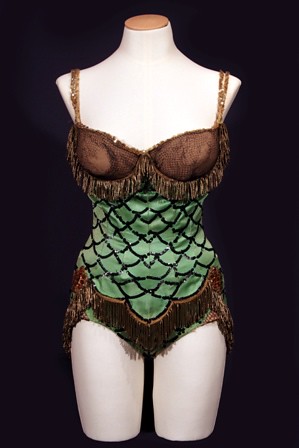
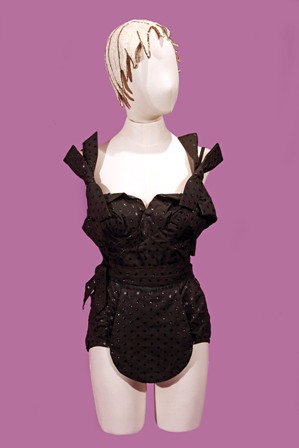
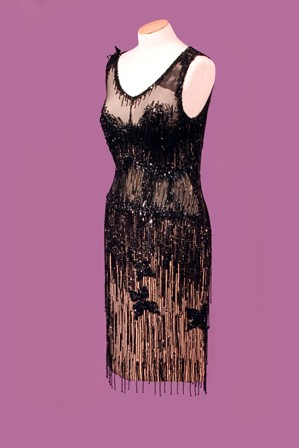
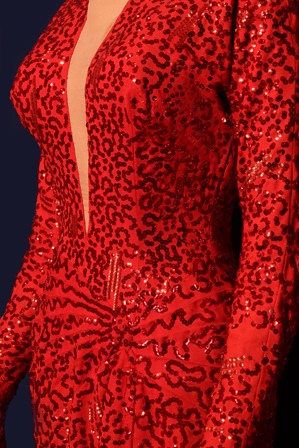
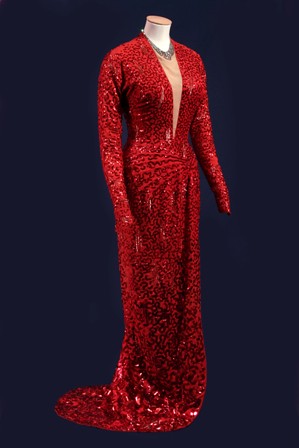
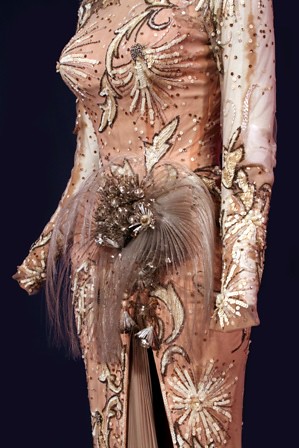
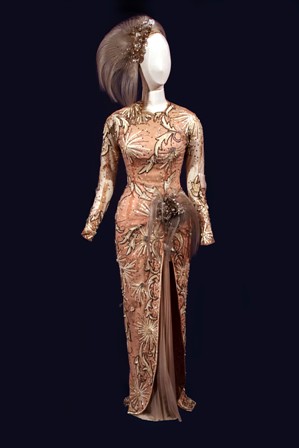
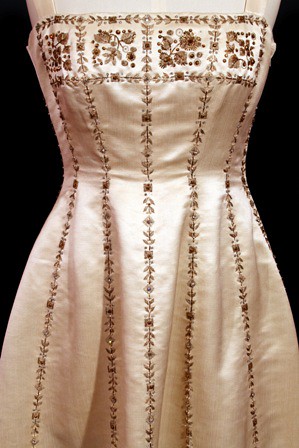
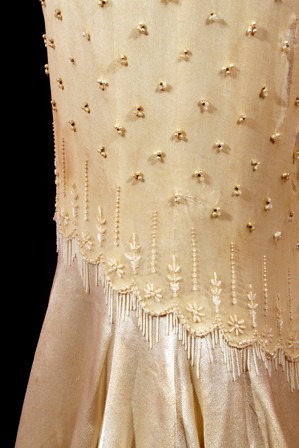
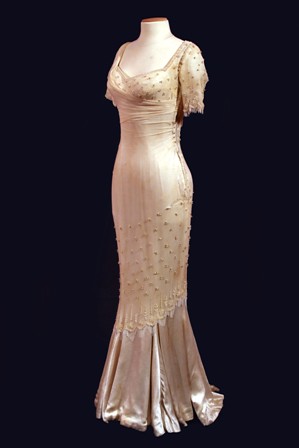
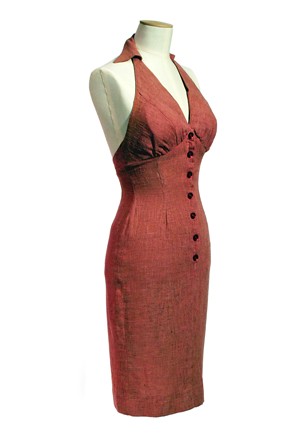
No comments:
Post a Comment